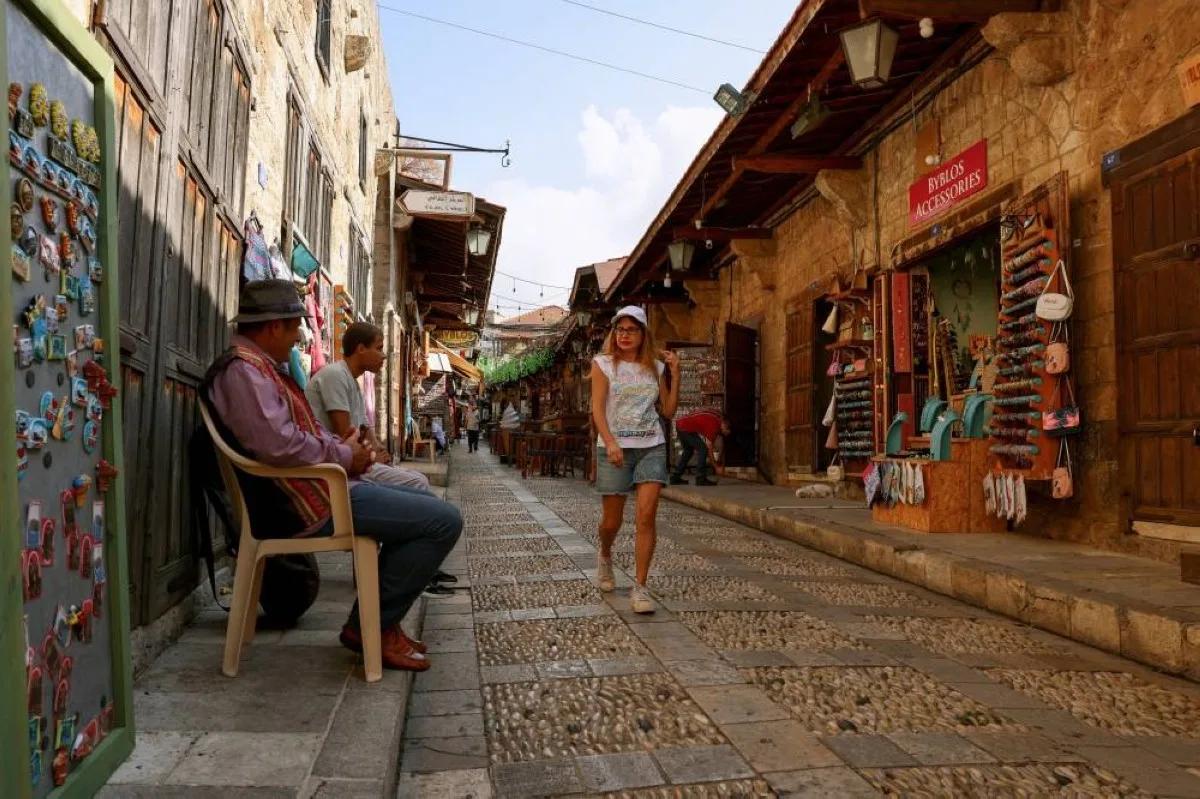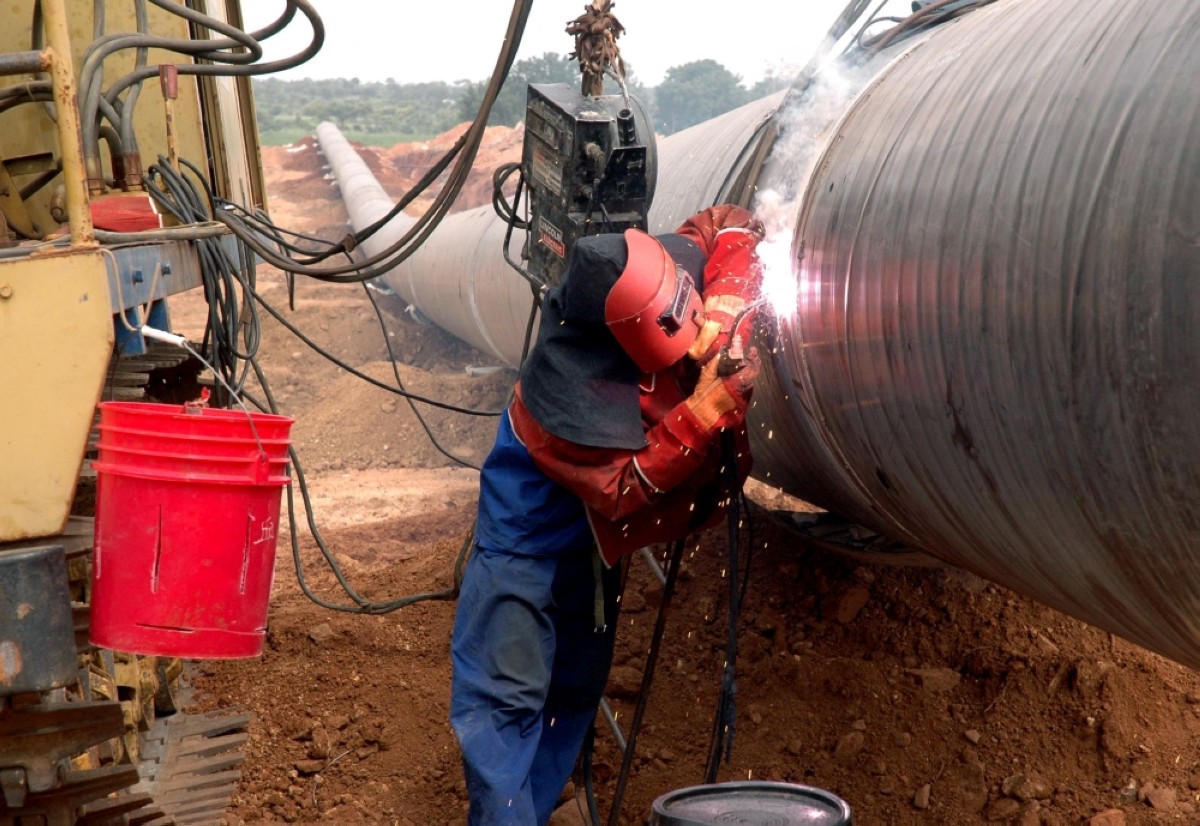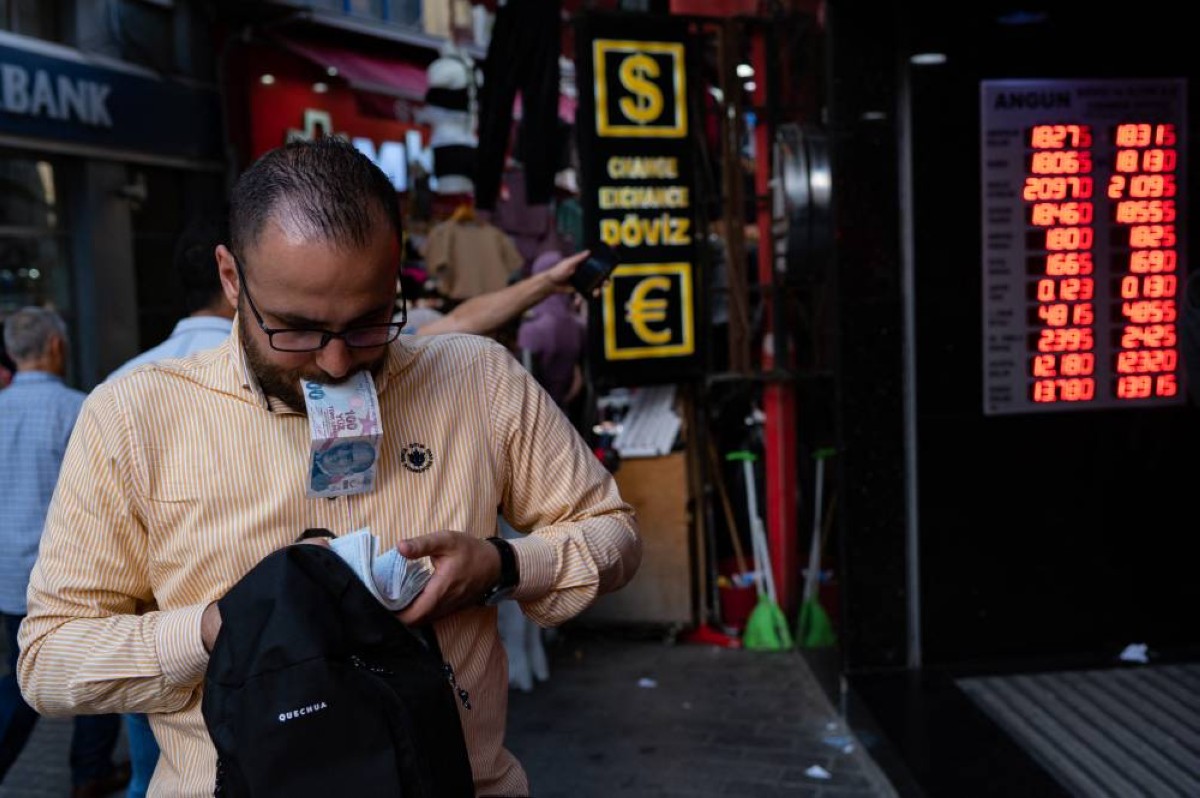Spectre of war paralyses Lebanon’s hospitality sector
BYBLOS: Bartender Richard Alam has poured hardly any drinks at his pub in Lebanon’s seaside city of Byblos, where once-busy streets have emptied of customers scared by border tensions during the Zionist entity-Hamas war.

BYBLOS: People walk past souvenir shops at the almost deserted old market in the historical port city of Byblos. Four years into an economic meltdown, Lebanon’s restaurants, cafes, hotels and shops now face yet another challenge. – AFP.
Four years into an economic meltdown, Lebanon’s restaurants, cafes, hotels and shops face yet another challenge: Keeping afloat during the Zionist entity-Hamas war and related hostilities on the Lebanon-Zionist entity border.
Gaza-based Hamas militants attacked southern Zionist on October 7, triggering retaliatory Zionist bombing and a ground offensive in Gaza. Since then, Lebanon’s southern border has seen deadly escalating skirmishes, mainly between Zionist entity and Hamas ally Hezbollah.
The fighting has so far been limited to the south, but some Western and Arab countries have advised their citizens to leave Lebanon, fearing a broader conflict. Byblos, on Lebanon’s northern coast, “relies on tourists,” Alam said, wearing a bow tie and a suit. “Our work has gone down from at least 40 to 50 tables a day to... seven at most.”
Nearby, customers are also scarce at Mona Mujahed’s souvenir shop, usually bustling with tourists and locals alike. But there has been “no work, no money”, Mujahed, 60, said, sipping coffee in front of her shop where souvenirs sit untouched on the shelves.
‘War ruined everything’
Many domestic visitors fearful of war have also cut back on expenses, hitting restaurants, cafes, bars and shops hard. Since 2019 Lebanese have suffered from a financial crisis branded by the World Bank as one of the planet’s worst since the 1850s. It pushed most of the population into poverty, and forced half of all restaurants, cafes, pubs and nightclubs to close down, said Tony Ramy, who heads an industry syndicate.
Ramy said the sector was just recently beginning to recover, after expatriate visitors flocked back to Lebanon over the summer following the coronavirus pandemic, the economic collapse and a catastrophic explosion at Beirut’s port in 2020.
“We had just turned the page on four difficult years with renewed momentum, but unfortunately the war ruined everything,” said Ramy, of the restaurant, cafe, nightclub and pastry shop owners’ syndicate.
“Since October 7 we have seen a dramatic decrease in clientele... (dropping) by up to 80 percent on weekdays and 30 to 50 percent on the weekend,” he said. “No one knows if the situation in the south will deteriorate and no one can plan for anything,” he said, warning of the potential for “huge losses”.
Cross-border skirmishes have killed at least 88 people in Lebanon, mostly Hezbollah combatants but also 10 civilians, according to an AFP tally.
In northern Zionist entity, nine people including six soldiers have been killed, according to official figures. Lebanon’s national carrier Middle East Airlines (MEA) has slashed flights, and passenger numbers from the region to Beirut have dropped by 54 percent compared to last year, said the airline’s spokesperson Rima Makkawi. MEA passengers from Europe have also dropped by 30 percent compared to the same period last year, she added. - AFP.











